We've seen exchanges collapse, wallets drained, and users left with little more than an apologetic tweet and a lost password. As the stakes get higher, especially with more institutional money and everyday folks diving into crypto, the question of how safe your exchange really is has never been more relevant.
That brings us to Kraken—one of the longest-standing and most well-known crypto exchanges out there. If you’re here, you’re probably wondering: Is Kraken still a fortress in a sea of sketchy platforms, or has it sprung a few leaks over the years?
In this article, we’ll break down Kraken’s security from every angle—its history, how it stacks up against the competition, the tools it offers users, and what you need to know before trusting it with your assets. Let’s cut through the hype and see what Kraken’s really made of.
Brief History of Kraken
Jesse Powell, a guy with a keen eye on the burgeoning digital currency scene, saw the chaos unfolding with Mt. Gox—a major exchange at the time dealing with security nightmares. Jesse thought, "We can do better." So, he teamed up with Thanh Luu and Michael Gronager to create Kraken, aiming to offer a safer and more reliable platform for crypto enthusiasts.
Building a Solid Reputation
Kraken didn't just pop up and hope for the best. They did put in the work to earn trust. By September 2013, after rigorous testing, they launched a platform that initially supported Bitcoin, Litecoin, and euro trades. But they didn't stop there. Kraken was among the pioneers to get listed on Bloomberg Terminal in 2014, a big nod from the traditional finance world.
When Mt. Gox collapsed, who did the trustees call to help with the investigation? You guessed it—Kraken. Their solid track record made them the go-to experts in the field.
Major Milestones in 2025
Kraken has been on a roll, constantly evolving and expanding. Here are some notable moves:
- Acquisitions Galore: They've snapped up several companies over the years, like Coinsetter and Cavirtex in 2016, broadening their reach and capabilities.
- Banking Moves: In 2020, Kraken made headlines by securing a Special Purpose Depository Institution (SPDI) charter in Wyoming, essentially becoming the first crypto exchange to hold such a banking license in the U.S.
- Global Expansion: They've been spreading their tentacles worldwide, acquiring licenses in multiple European countries and even planning an IPO, eyeing a public debut as early as Q1 2026.
- Product Innovation: Always looking ahead, Kraken launched its own crypto wallet in April 2024, supporting multiple blockchains and enhancing user experience.
Regulatory Compliance
Crypto might love to play fast and loose, but Kraken? It’s more of a straight-laced overachiever when it comes to regulations. That’s a good thing. In a space riddled with rug pulls and shutdowns, Kraken’s compliance-first mindset is one of the main reasons users stick around.
Kraken's Global Regulatory Reach
Kraken has taken the regulatory game seriously from early on, securing a variety of licenses to legally operate in key markets:
- Australia: Kraken is registered as a Digital Currency Exchange and offers crypto derivatives through a licensed entity.
- United Kingdom: It operates locally as a Financial Conduct Authority (FCA) Registered Cryptoasset Firm under the Money Laundering Regulations.
- European Union: Thanks to an Electronic Money Institution license in Ireland, Kraken can offer services across the EU and EEA.
Compliance Isn’t Just Paperwork
Regulatory compliance isn’t a passive badge—it’s baked into Kraken’s systems. That includes:
- KYC (Know Your Customer) and AML (Anti-Money Laundering): Every user is vetted, and transactions are monitored to catch suspicious activity.
- Data protection policies: User info is guarded with strict internal controls and encryption.
- Market surveillance tools: These detect and prevent price manipulation or sketchy behavior.
What's in It for You?
Kraken’s regulatory discipline means more than just staying out of legal trouble. For users, it translates to:
- Greater trust in the platform’s integrity.
- A lower chance of sudden service interruptions due to regulatory drama.
- Assurance that your money is handled with a higher level of accountability.
So, Kraken’s approach to compliance is a key part of what makes it feel like a safe harbor in a sometimes stormy crypto sea.
Security Features
When it comes to handling digital assets, security isn’t just a feature—it’s the foundation. Kraken knows this better than most and has built its entire platform around protecting users from the ever-evolving threats in the crypto space. From military-grade storage solutions to smart user authentication systems, Kraken’s layered security strategy is designed to guard your funds without making your trading experience a hassle. Let's break down the core components of what makes Kraken one of the most secure exchanges out there.
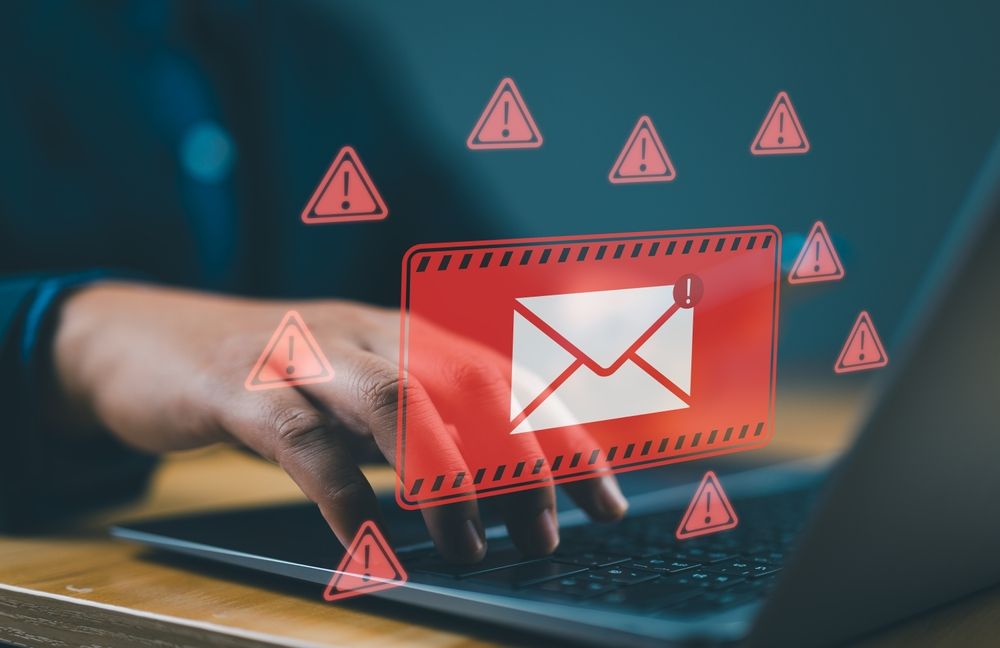 With Crypto, Security isn’t just a Feature—it’s the Foundation. Image via Shutterstock
With Crypto, Security isn’t just a Feature—it’s the Foundation. Image via ShutterstockCold Storage and Custody Practices
Keeping your digital assets safe is a big deal. Think of it like stashing your cash under the mattress versus locking it up in a high-security vault. Kraken opts for the vault approach, using a method called cold storage to protect your funds.
What is Cold Storage?
Cold storage means keeping your cryptocurrency's private keys completely offline, away from any internet connection. This means your funds never touch the web, making it nearly impossible for hackers to access. Transactions are signed in a secure environment, ensuring your assets stay safe from online threats.
Kraken's Custody Approach
Kraken doesn't just rely on cold storage; they combine it with other security measures to create a fortress for your funds:
- Secure Facilities: Their crypto infrastructure is housed in secure cages under 24/7 surveillance by armed guards, alarm systems, and video monitors.
- Advanced Wallet Solutions: Kraken uses a mix of cold storage and hot wallets (online wallets) to balance security and accessibility. The majority of funds are kept in cold storage, while a smaller portion is held in hot wallets for immediate transactions.
- Regular Audits: They perform Proof of Reserves audits with external auditors, allowing users to verify that Kraken holds the assets it claims to.
Two-Factor Authentication (2FA) and Login Security
In the crypto world, a password alone is like locking your front door but leaving the windows wide open. That’s why Kraken leans heavily on Two-Factor Authentication (2FA)—a simple yet powerful way to keep intruders out.
Why 2FA Matters
2FA adds an extra layer of protection by requiring a second form of verification beyond your password. Whether it’s a time-sensitive code from an app or a tap on a physical security key, this second factor makes it exponentially harder for anyone to hijack your account—even if they have your login credentials.
Kraken’s 2FA System
Kraken gives users flexibility in how they secure their accounts:
- Authenticator Apps: These generate unique codes for each login attempt. No code, no access.
- Hardware Security Keys: Physical devices that confirm your identity with a single touch—no code input required.
To make the most of Kraken’s security features:
- Apply 2FA to everything: Not just for login—use it on withdrawals and trading too.
- Set a Master Key: This acts as a backup for recovering or locking your account if needed.
- Keep devices secure: If someone gets your phone or hardware key, they’ve got the keys to your castle.
- Review settings regularly: Stay ahead by auditing your security setup now and then.
Kraken’s approach to 2FA makes serious security feel manageable. It’s high protection, low friction—the way it should be.
Identity Verification and KYC Protocols
Trust is everything in the crypto-verse. Kraken understands this and has implemented robust Identity Verification and Know Your Customer (KYC) protocols to ensure a secure trading environment. By confirming user identities, Kraken not only complies with global regulations but also protects its platform from fraudulent activities.
How Kraken Verifies User Identities
Kraken employs a thorough verification process to authenticate users:
- Document Submission: Users provide valid government-issued identification, such as a passport or driver's license, to confirm their identity.
- Proof of Address: A recent utility bill, bank statement, or similar document is required to verify the user's residential address.
- Face Photo: A live capture or uploaded photo ensures the person creating the account matches the ID provided.
- Social Security Number (SSN) or Individual Taxpayer Identification Number (ITIN): For U.S. clients, this information is collected to comply with federal regulations.
These steps are designed to prevent identity theft, money laundering, and other illicit activities, making the space safer.
Verification Tiers and Withdrawal Limits
Kraken offers two main verification levels, each with specific features and limits:
- Intermediate: This level grants access to essential account functions, including buying and selling crypto, depositing cash and crypto, and margin trading.
- Pro: Aimed at high-volume traders, this level offers increased deposit and withdrawal limits, access to Kraken's Over-the-Counter (OTC) trading desk, and higher API limits.
Withdrawal limits vary based on the verification level:
- Intermediate Accounts:
- Cryptocurrency Withdrawals: Up to $500,000 daily.
- Cash Withdrawals: Up to $100,000 daily and $500,000 monthly.
- Pro Accounts:
- Cryptocurrency Withdrawals: Starting at $10 million daily, with potential increases upon request.
- Cash Withdrawals: Starting at $10 million daily and $100 million monthly, with potential increases upon request.
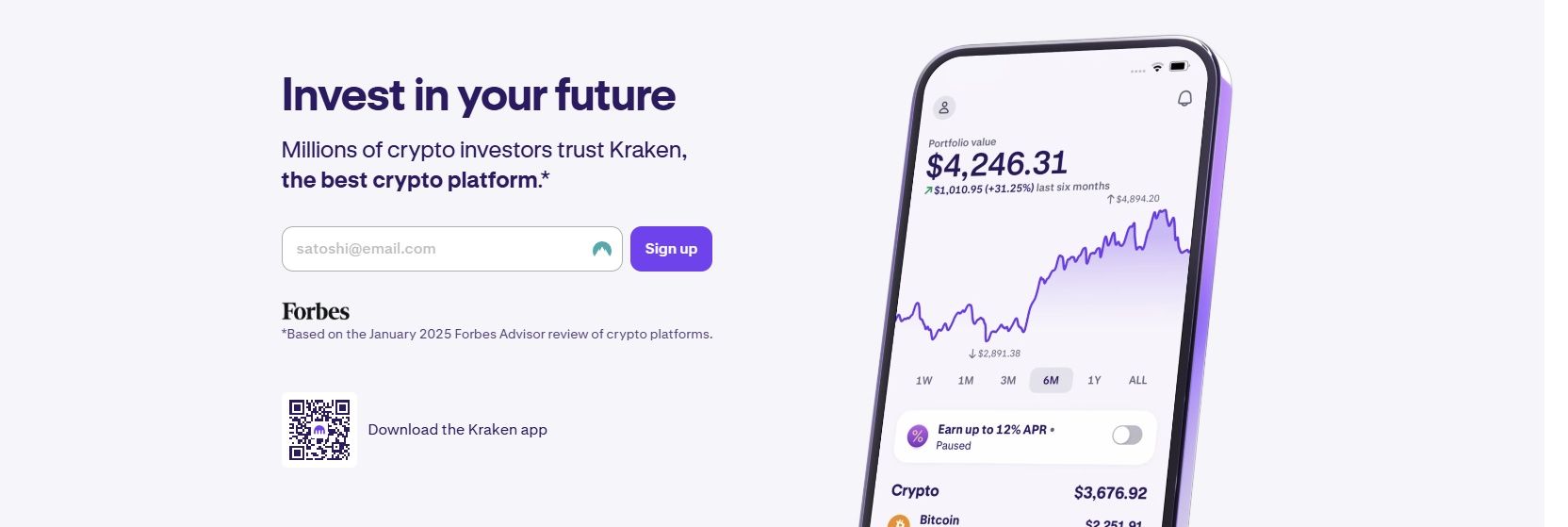 From a Bold Idea in 2011 to a Powerhouse in the Crypto Exchange Arena. Image via Kraken
From a Bold Idea in 2011 to a Powerhouse in the Crypto Exchange Arena. Image via KrakenAnti-Phishing Measures
Phishing scams are the digital equivalent of wolves in sheep's clothing—deceptive attempts to steal your sensitive information by masquerading as trustworthy entities. Kraken recognizes the severity of these threats and has implemented robust measures to shield its users.
Kraken's Strategies to Combat Phishing
- PGP Email Encryption: Kraken signs its emails with Pretty Good Privacy (PGP), allowing users to verify the authenticity of communications by checking the PGP signature.
- Official Communication Channels: Kraken emphasizes the importance of recognizing its genuine email domains. Official communications will come from addresses ending with “@kraken.com.”
- Educational Resources: Kraken provides comprehensive guides on securing your account and recognizing scams.
User Recommendations to Recognize and Avoid Scams
- Bookmark the Official Website: Always access Kraken by typing "www.kraken.com" directly into your browser or using a bookmark. Avoid using search engines to navigate to the site, as phishing websites can appear in search results.
- Enable Two-Factor Authentication (2FA): Activate 2FA on your account to add an extra layer of security. This ensures that even if your password is compromised, unauthorized access is prevented.
- Be Skeptical of Unsolicited Communications: Kraken will never ask for your username, password, or 2FA codes via email or phone. If you receive such a request, it's likely a phishing attempt.
- Verify URLs Carefully: Before entering your login credentials, double-check the website's URL to ensure it's the official Kraken site. Phishing sites often use URLs that closely resemble the legitimate site but may have subtle differences.
- Secure Your Devices: Regularly update your devices and use reputable security software to protect against malware that can capture sensitive information.
Bug Bounty Programs and Ongoing Security Audits
Ensuring the security of digital assets requires a proactive approach, and Kraken employs multiple strategies to safeguard its platform and users. Two critical components of this approach are bug bounty programs and ongoing security audits.
Bug Bounty Programs: Strengthening Security Through Community Engagement
Kraken operates a comprehensive bug bounty program that invites security researchers to identify and report potential vulnerabilities within its systems. By collaborating with the global security community, Kraken benefits from diverse expertise to uncover and address security flaws proactively. Researchers who adhere to Kraken's responsible disclosure policy are eligible for rewards, promoting a cooperative environment aimed at enhancing platform security.
Regular Security Audits: Upholding Platform Integrity
Beyond engaging external researchers, Kraken conducts regular internal and external security audits to assess and fortify its systems. These audits involve comprehensive evaluations of infrastructure, codebases, and operational practices to identify and mitigate potential risks. Notably, Kraken has completed the SOC 2, Type I examination, an independent assessment that verifies the effectiveness of its internal controls related to security and availability. This certification reflects Kraken's commitment to maintaining high standards of data protection and operational integrity.
Kraken vs. Other Exchanges
Navigating the crypto exchange landscape can feel like choosing between different roller coasters—each offers a unique ride with its own thrills and chills. Let's see how Kraken stacks up against some of the industry's heavyweights.
| Category | Kraken | Binance | Coinbase |
|---|---|---|---|
| Daily Trading Volume | ~$1.5 billion (CoinGecko) | ~$23 billion (CoinGecko) | ~$4 billion (CoinGecko) |
| User Base | 10+ million users | 250+ million users | Available in 100+ countries, large U.S. user base |
| Security Record | No major breaches, robust cold storage & 2FA | Hacked in 2019; improved security since | Strong security; regulatory challenges & $100M fine |
| Regulatory Compliance | Strong compliance focus | Some scrutiny and legal issues | High-profile compliance actions taken |
| User Experience | Balanced: user-friendly + advanced features | Feature-rich, may overwhelm beginners | Very user-friendly, ideal for U.S. retail traders |
| Asset Selection | Wide range of cryptocurrencies | Very broad selection | Moderate selection of top coins |
| Why Choose? | Top-tier security, regulatory focus | High liquidity and large variety of assets | Simplicity, U.S. regulation familiarity |
Trading Volume and User Base
- Binance: Dominates with daily trading volumes at around $23 billion according to CoinGecko, and boasting a vast user base exceeding 250 million.
- Coinbase: Boasts a strong daily trading volume of around $4 billion as per CoinGecko, and caters to users across more than 100 countries, making it a go-to for many, especially in the U.S.
- Kraken: While smaller in comparison, Kraken maintains a solid reputation with over 10 million users globally and daily trading volumes around $1.5 billion as per CoinGecko.
Security Records
- Binance: Despite implementing strong security protocols, it faced a significant hack in 2019 but has since enhanced its defenses.
- Coinbase: Known for stringent security practices, though it has encountered regulatory challenges, including a $100 million settlement over compliance issues.
- Kraken: Boasts an unblemished security record with no major breach, emphasizing robust measures like cold storage and two-factor authentication.
Why Choose Kraken?
- Security First: Kraken's pristine security record offers peace of mind for those prioritizing asset safety.
- Regulatory Compliance: A strong emphasis on adhering to regulations ensures a trustworthy trading environment.
- User Experience: Balances advanced trading features with a user-friendly interface, catering to both novices and seasoned traders.
- Asset Selection: Offers a diverse range of cryptocurrencies, providing ample trading opportunities.
In the interest of fairness, you might want to check out our exclusive reviews of these two exchanges:
Also, we compare Kraken against a few other exchanges in the following articles:
Insurance and Funds Protection
When entrusting your assets to a cryptocurrency exchange, understanding how your funds are protected is paramount. Let's delve into Kraken's approach to safeguarding both crypto and fiat holdings.
 Understanding how your Funds are Protected is Paramount. Image via Kraken
Understanding how your Funds are Protected is Paramount. Image via KrakenKraken's Insurance Coverage
Kraken is not a bank or depository institution, and as such, balances stored on the platform are not covered by traditional insurance programs like the Federal Deposit Insurance Corporation (FDIC) or the Securities Investor Protection Corporation (SIPC). This means that, in the event of unforeseen circumstances, there isn't an insurance policy in place to reimburse users for potential losses.
Protection of User Funds
Despite the absence of formal insurance, Kraken employs robust security measures to protect user funds:
- Cold Storage: The majority of digital assets are held in offline, air-gapped cold storage, minimizing exposure to online threats.
- Advanced Security Protocols: Kraken utilizes state-of-the-art encryption and security practices to safeguard its infrastructure and user data.
- Proof of Reserves Audits: Kraken conducts regular Proof of Reserves audits, allowing users to verify that their balances are held in full reserve.
These measures demonstrate Kraken's commitment to maintaining a secure platform, even without formal insurance coverage.
Crypto vs. Fiat Protections
It's essential to distinguish between the protections afforded to cryptocurrency and fiat currency holdings:
- Cryptocurrency Holdings: As mentioned, crypto assets are not insured. Kraken's security measures aim to protect these assets from unauthorized access and cyber threats.
- Fiat Currency Holdings: Fiat balances are held at various funding provider institutions in corporate bank accounts. However, these funds are not insured by the FDIC or any other deposit insurance program.
User Experience and Public Reviews
When diving into the world of crypto exchanges, user experience and public sentiment are pivotal. Let's explore what users are saying about Kraken's security, reliability, and customer support.
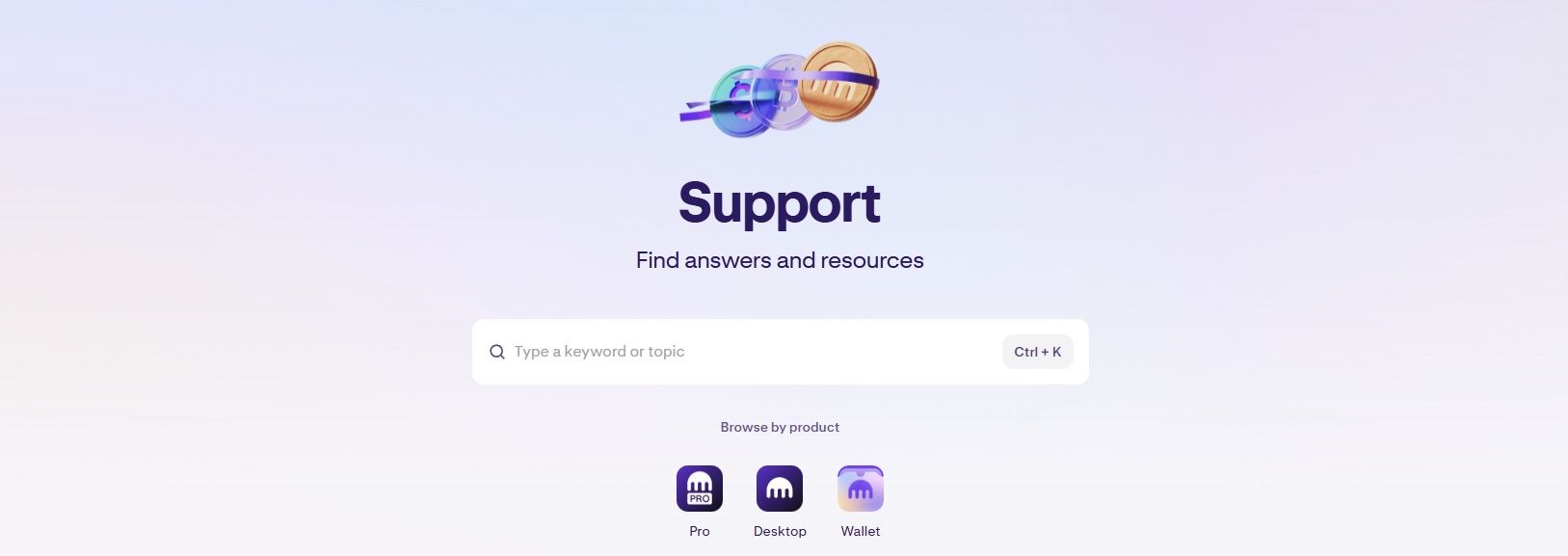 User Experiences can Differ Based on Individual Circumstances. Image via Kraken
User Experiences can Differ Based on Individual Circumstances. Image via KrakenUser Feedback on Security and Reliability
Kraken has garnered a reputation for its robust security measures, with many users expressing confidence in the platform's ability to safeguard their assets.
However, some users have raised concerns about the user interface and overall experience. Discussions on online social media highlight that while security is a strong point, there have been critiques regarding the platform's usability. Let's accept the fact that minor dissatisfactions and imperfections are part and parcel of the game. However, Kraken stands strong with security and reliability.
Customer Support Performance
Kraken offers 24/7 customer support through live chat and email, aiming to assist users promptly. The exchange emphasizes its commitment to providing quick and efficient resolutions.
Despite these efforts, user reviews present a mixed picture. Some users have reported positive experiences, appreciating the promptness and helpfulness of the support team. Conversely, others have encountered challenges, citing issues like slow response times and difficulties in resolving account-related problems. Again, these are individual experiences that carry many variables; however, overall, Kraken seems to stand somewhere in the middle with customer support.
Real-World Experiences with Fund Safety and Incident Response
In terms of fund safety, Kraken has maintained a strong security record, with no major breaches reported. The platform's proactive approach includes regular security audits and a comprehensive bug bounty program to identify and address potential vulnerabilities.
However, individual experiences can vary. Some users have reported issues related to fund withdrawals and account restrictions. For example, a user shared a negative experience involving account termination and fund access difficulties, which was a bit disturbing.
It's important to note that while Kraken implements stringent security protocols, user experiences can differ based on individual circumstances and interactions with the platform.
Potential Risks and Concerns
While Kraken remains a prominent player in the cryptocurrency exchange landscape, it's essential for users to be aware of potential risks and concerns associated with the platform.
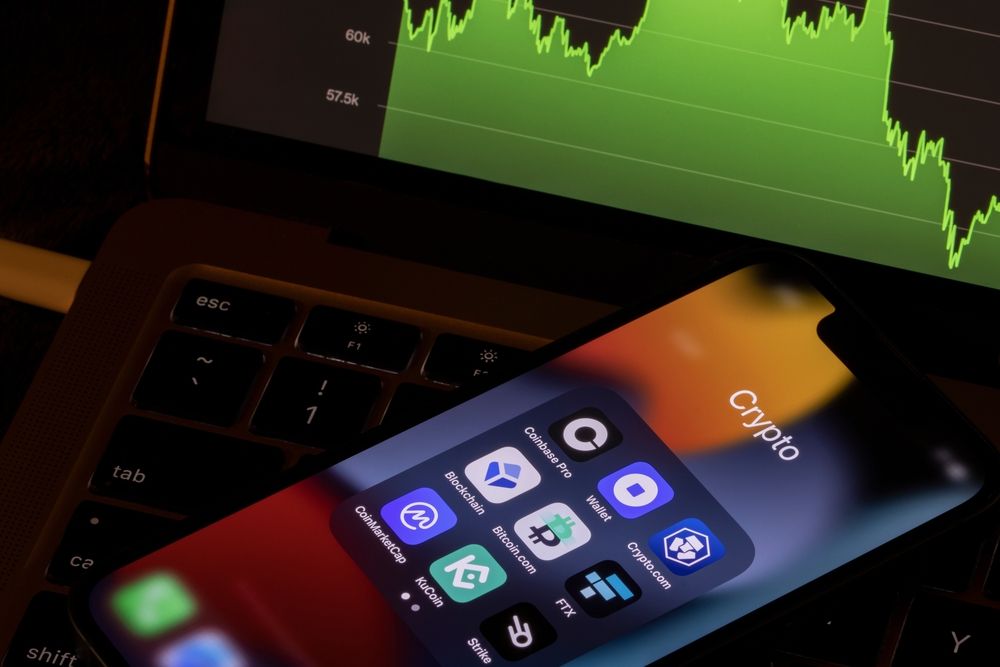 Choosing an Exchange Hinges on Individual Preferences and Priorities. Image via Shutterstock
Choosing an Exchange Hinges on Individual Preferences and Priorities. Image via ShutterstockPossible Hacking Incidents and Vulnerabilities
In June 2024, Kraken experienced a security incident where a self-proclaimed security researcher exploited a critical zero-day vulnerability in the platform's funding system. This flaw allowed the individual to fraudulently withdraw nearly $3 million from Kraken's treasury. Notably, no client assets were affected. Kraken's Chief Security Officer, Nick Percoco, emphasized that the actions of the individuals involved constituted extortion rather than ethical hacking.
Regulatory and Market Risks
Kraken has faced regulatory challenges in various jurisdictions:
- United States: In November 2023, the U.S. Securities and Exchange Commission (SEC) filed a lawsuit against Kraken, alleging that the exchange operated as an unregistered securities exchange and commingled customer assets with its own. In March 2025, Kraken announced that the SEC agreed to dismiss the lawsuit with prejudice, meaning the case cannot be brought again.
- Australia: In December 2024, Kraken's operator, Bit Trade, was fined $8 million by Australia's Federal Court for breaching design and distribution obligations related to its margin trading product. The Australian Securities and Investments Commission (ASIC) highlighted the importance of compliance to protect consumers in the crypto-asset sector.
- UAE: Kraken, after initially securing a license in the United Arab Emirates (UAE) and establishing its Middle East HQ in Abu Dhabi, later shut down its Abu Dhabi office and suspended trading in the UAE currency (AED) due to market conditions and a broader restructuring.
Kraken's Handling of Security Breaches
Kraken has demonstrated a proactive approach to security incidents:
- Bug Bounty Programs: The exchange maintains a bug bounty program to identify and address vulnerabilities. However, the June 2024 incident highlighted challenges when individuals exploit these programs unethically.
- Security Measures: Kraken employs robust security protocols, including cold storage for the majority of digital assets, advanced encryption, and real-time monitoring for suspicious activity.
Tips for Maximizing Your Security on Kraken
Kraken offers some of the best built-in security in the crypto space, but platform security is a two-way street. As a user, your personal habits and setup can make or break your account's safety. Here are some practical, easy-to-follow steps to keep your assets locked down.
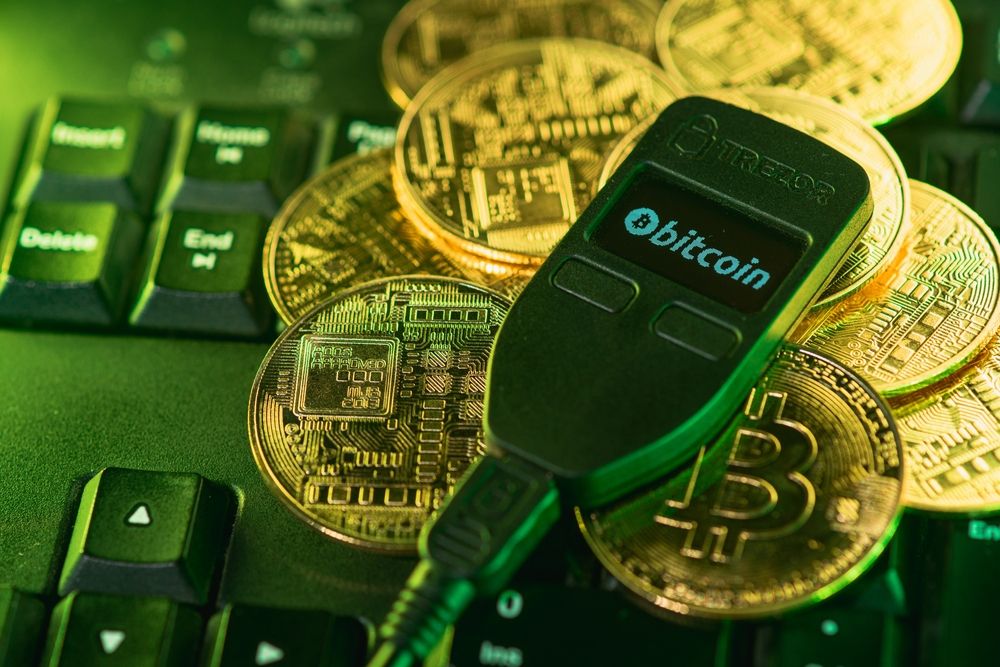 Your Personal Habits and Setup can Make or Break your Account's Safety. Image via Shutterstock
Your Personal Habits and Setup can Make or Break your Account's Safety. Image via ShutterstockBuild a Strong Foundation with Passwords and 2FA
- Use a unique, complex password: Skip the pet names and birthdays. Go for long, random strings with a mix of characters. Password managers can make this easy and secure.
- Enable Two-Factor Authentication (2FA): Always, always use 2FA. Prefer an authenticator app or a hardware security key over SMS for added protection.
- Set a Master Key: On Kraken, this acts as a backup that helps lock your account down or recover access if needed. It’s a smart, often overlooked security layer.
Keep Transfers Tight and Clean
- Whitelist withdrawal addresses: This feature ensures that even if someone breaches your account, they can’t just send funds to a new wallet. Only pre-approved addresses can be used.
- Double-check recipient details: One wrong character in a crypto address and your funds are gone. Use copy-paste carefully, and always verify the first and last few characters.
- Avoid public Wi-Fi: Transferring or withdrawing funds on unsecured networks is asking for trouble. Stick to trusted connections whenever you handle crypto.
Stay Vigilant and Informed
- Monitor your account regularly: Keep an eye on logins and activity. Kraken lets you review access logs so you can spot anything suspicious early.
- Stay updated: Subscribe to Kraken's status page or follow their official updates. If there’s a vulnerability or important security update, you’ll want to be among the first to know.
- Refresh your security knowledge: Threats evolve. Checking in on best practices every now and then can keep your defenses sharp. Security isn’t just a setup—it’s a mindset. With the right precautions, Kraken can be not only one of the safest exchanges by design but also in practice.
You might find our online crypto safety guide pretty useful!
Final Thoughts
After swimming through Kraken’s deep waters, it’s clear this exchange isn’t just coasting on reputation—it’s actively working to stay one of the safest harbors in crypto. From its cold storage system and battle-tested security features to its commitment to regulatory compliance, Kraken has built a track record that most platforms would envy. Even when faced with challenges—like zero-day exploits or legal scrutiny—Kraken hasn’t flinched. Instead, it’s responded with transparency, quick action, and a continued focus on user protection.
Looking ahead, Kraken seems poised to double down on security innovation. With new features like its crypto wallet rollout, plans for further global expansion, and continued audits and bug bounties, the platform is clearly not resting on its laurels. It’s adapting to an increasingly complex threat landscape while trying to keep the user experience tight and intuitive.
Based on the evidence, Kraken is one of the most secure exchanges in the game—but, as with all things crypto, your safety also depends on your habits. Use strong passwords, enable 2FA, stay alert, and you’ll be well-positioned to make the most of what Kraken has to offer—without losing sleep over your assets.





